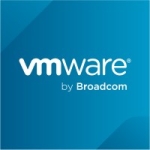What is our primary use case?
General use cases of AWS are for those needing a managed cloud instance without the bulk costs for a legacy server. We are customers of Amazon and I'm the technology manager.
How has it helped my organization?
The benefit to the company is immense financial savings and the fact that you're able to see your monthly costs before buying anything. The AWS monthly calculator enables you to select your database, servers, volumes, and see how much everything will cost on a monthly basis. You can figure out what you'll be paying, so it enables a comparison; it's usually a third to half the cost of using an on-prem system.
What is most valuable?
Amazon is easy to upgrade, easy to expand storage and change your EC2 types. Each of those things usually takes at most five minutes to do, whereas on a legacy system you have to actually buy a new system or new hardware and have downtime for installation. Even then it may not be configured the same way and you might end up with a widespread outage. The advantage of using AWS is that all the testing's been done so you have proof that it works. We still do a cursory check, but they don't put anything out there that hasn't been vetted. Plus all the Atlassian tools are on AWS as well. The cloud instances they provide have a very robust network because there are over 160,000 companies that use the tools. Backups are really easy to access as are the automated backups of the VMs and the volumes. We're able to create a new volume from a backup in about two minutes, attach it to the server and view the data side by side to compare the old to the new. It takes 10 minutes total to get all the access needed.
I've had very positive experiences with AWS and it's gotten a lot better over time with their improved interfaces. Everything's all interconnected now and within its own framework. We pull in other tools to the OS such as Docker but AWS provides tools like Yum that enable quick installation of things. It's typically part of the OS.
What needs improvement?
While the IAM security key is very secure, they only give you one chance to capture your key. If I'm already logged in and have an email address online, it would be better if it were sent in an encrypted manner to email so that you don't lose the key. I might create the IAM and then perhaps forget to capture it off the screen and then when I do need it, I realize I don't have it and have to create another profile.
For how long have I used the solution?
I've been using this solution for about 12 years.
What do I think about the stability of the solution?
I haven't had any problem with stability. We do multiple zone backups and multiple zone data and we haven't had any problems or slowdowns. We've had dealings with countries like India, where things are generally slower but with AWS there haven't been any issues. There's no wait time.
What do I think about the scalability of the solution?
Scalability is good. I like the EFS expandable storage because it expands and contracts, you don't have to do anything with it and it's really inexpensive. Somebody may use it for temporary storage where they drop a terabyte of data that they need to give to a customer and then it shrinks back down when they're done with it. It expands and contracts as needed and that's also reflected in the cost.
How are customer service and technical support?
The technical support is very fast, very efficient and very knowledgeable. Even when I've asked questions and they didn't know the answers, they were able to find someone within 15 minutes that was able to help.
How was the initial setup?
The initial setup is pretty straightforward. The main thing is getting the security protocols set up in the proper order, otherwise it won't work. You have to go in and set up the main group and make sure to share it to your database. They've improved their documentation and it's a lot better but still lacks a little in some areas. If you've deployed before, setup takes a couple of hours, otherwise it might take up to a day. It's a lot faster on cloud; if you're working on-prem you have to jump through a lot of hoops because each team has its own security.
They have scripting tools on AWS which allow you to set up your framework and you can use it as a template. We use an AWS architect for implementation and to make sure all the security is set up. And then we have a DevOps team that manages the OS updates. That's a team of three handling over 100 servers, VMs basically. Once a month they do the non-production patching with the production patching the following week.
What's my experience with pricing, setup cost, and licensing?
Licensing fees are only applicable if you're using Red Hat or an Oracle database. You have to pay for both of those. If you're using Postgres or MySQL, there are no costs for the actual database application. There are no fees for individuals using Oracle Java, but businesses pay a license. We use an OpenJDK that is vetted by Atlassian so if you don't want to buy Java you can use the OpenJDK.
What other advice do I have?
My advice would be to do some homework, read as much as you can about the setup before you dive in. If you take an hour to review the setup and then put together your own process so you know all the steps required and you use a checklist, it simplifies things. Have some kind of system, whether it's a spreadsheet or a Confluence page where you're documenting the steps and keeping track of where you're at.
Whenever I'm asked to do something, I can find a tool on AWS that I can vet for our customers, and for that reason, I rate Amazon AWS 10 out of 10.
Which deployment model are you using for this solution?
Public Cloud
If public cloud, private cloud, or hybrid cloud, which cloud provider do you use?
Amazon Web Services (AWS)
Disclosure: My company does not have a business relationship with this vendor other than being a customer.



















